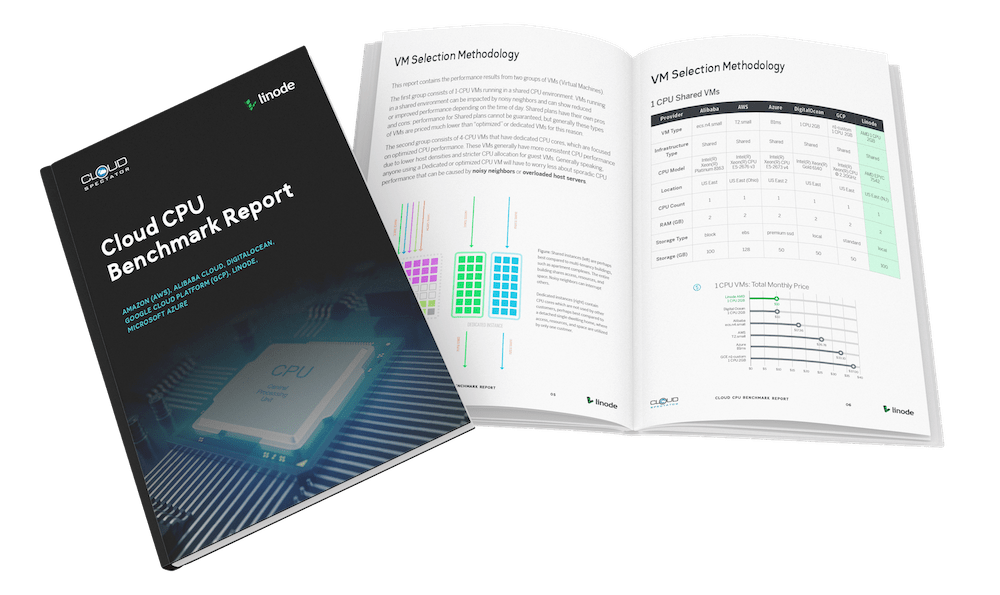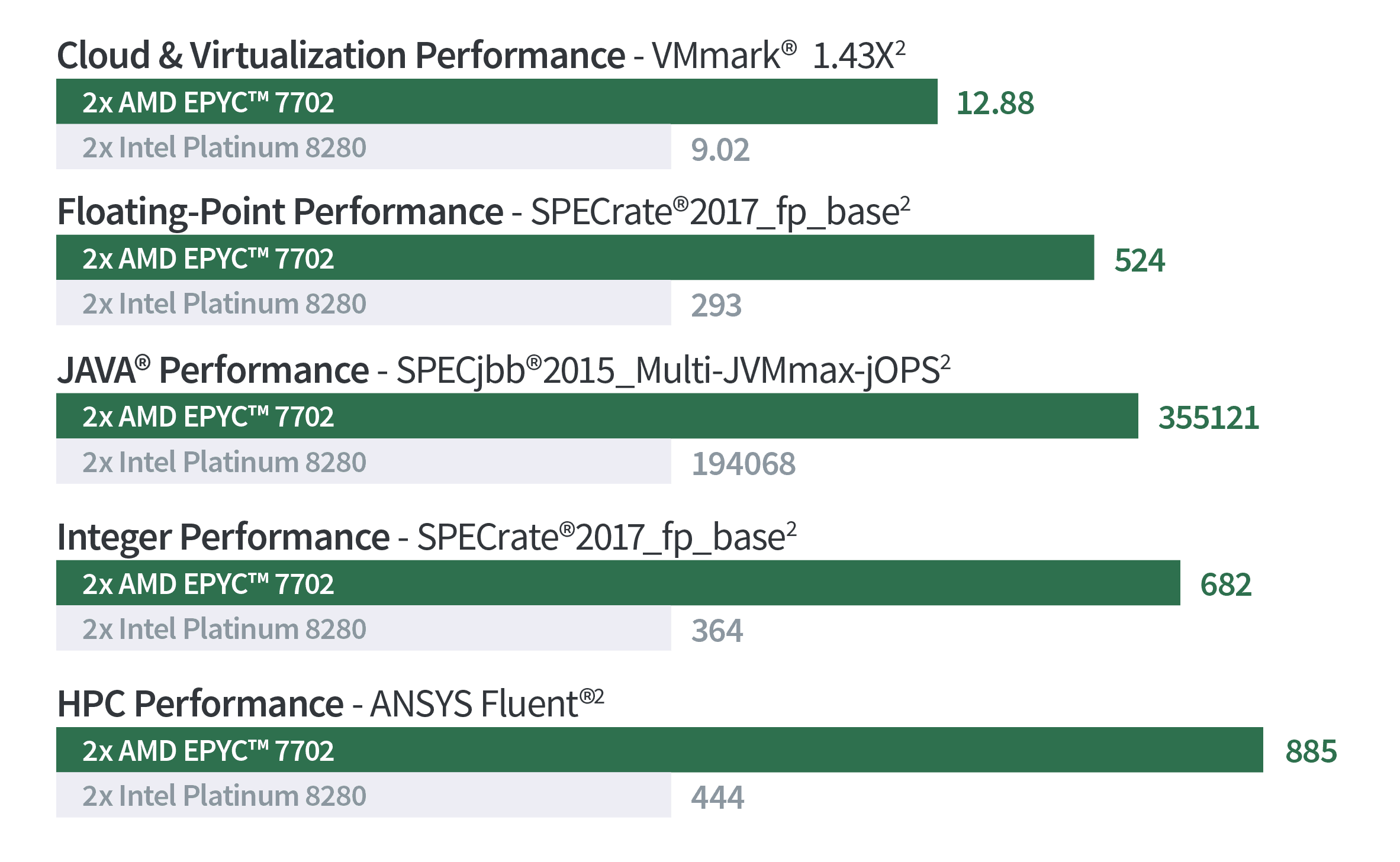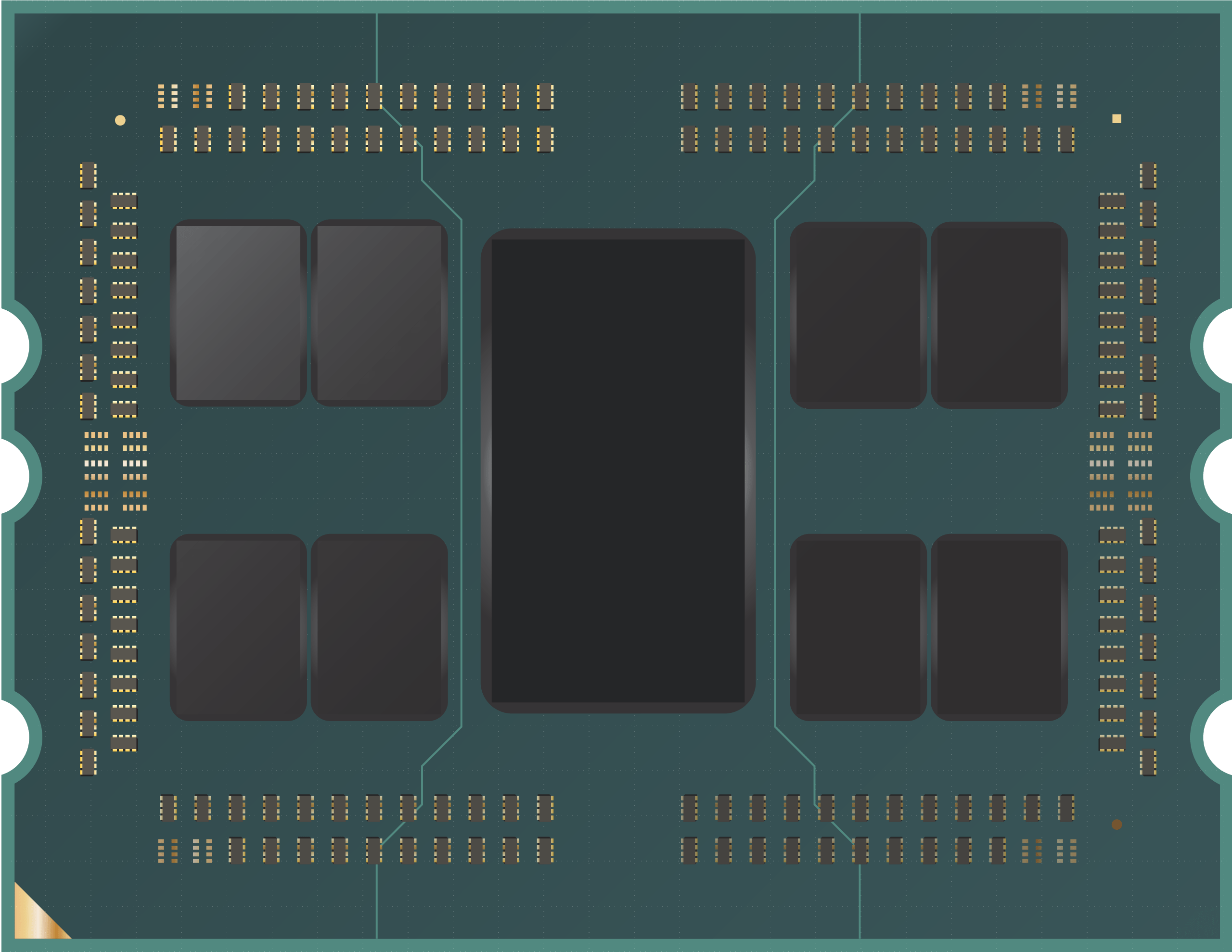Akamai and AMD: Two pioneers in cloud computing work in tandem to deliver the best server-based CPUs in the cloud. Offering the same or better quality of service as AWS and Google Cloud starts with using the same hardware. By partnering with AMD, we achieve hardware parity while providing the same core services and global availability as other cloud providers, but with significantly better price-performance.
Data centers and the machines that power them affect every interaction with a web application or piece of data that is transmitted from one machine to another. When innovation for server CPUs stagnated, AMD shaped innovation specifically for cloud-based solutions. AMD now dominates the market with better security and performance to provide the critical performance standards you’re looking for. Our selection of AMD 7000 series CPUs allow us to uphold superior price-performance and help more developers and organizations discover the power of the cloud.
CPU Performance Benchmarking
Cloud Spectator compared the performance results of the same plan on six different providers: Linode (now Akamai), AWS, GCP, DigitalOcean, Alibaba Cloud, and Azure. This also compared the performance of our AMD EPYC 7542-based instances versus the other providers' Intel cores. We beat the competition in overall performance for Dedicated instances, best value for our popular 2GB/1 CPU Shared plan, and overall price-performance*.
*based on locations and hardware available in 2020.

Revolutionizing the cloud with AMD EPYC CPUs
Compute Instances powered by AMD
AMD EPYC Generations

1st Generation
(Available)
Naples
(7001 Series)
(Available)
(7001 Series)
Naples is the series of high-performance multiprocessors that introduced AMD’s Zen microarchitecture to cloud computing, and brought AMD to the top of the market. With a maximum of 32 cores, the Naples series supports both single and 2-way multiprocessing on AMD’s Infinity Fabric protocol.

2nd Generation
(Available)
Rome
(7002 Series)
(Available)
(7002 Series)
The road to Rome goes through Naples. AMD Rome is the nickname for AMD’s 2nd generation of server microprocessors based on Zen 2 microarchitecture. Linode introduced this generation to our fleet in 2020. These processors contain up to 64 cores, doubling the maximum core count found in previous generations. Rome also introduced AMD's new Infinity Fabric 2, which improved efficiency by 27%.

3rd Generation
(Available)
Milan
(7003 Series)
(Available)
(7003 Series)
AMD continues to deliver market-leading price-performance and overall I/O innovation with Milan, the 3rd generation of AMD EPYC processors. In preliminary benchmarks, the AMD EPYC Milan series provided up to a 30% performance increase over previous generation AMD EPYC Rome processors in database, high performance computing, and hyper-converged infrastructure performance tests. This EPYC generation is available throughout the fleet, and guaranteed for Premium compute instances.
AMD EPYC 7002 vs. Intel Platinum Performance
AMD EPYC 7000 series CPUS make virtually everything run better in the cloud, including the new 7002 series processors being added to our fleet. EPYC processors are #1 on industry benchmarks, including integer, floating-point, virtualization, database, and HPC performance. These powerful processors live up to their name in both their performance as a user and Linode’s ability to make infrastructure more efficient and cost-effective. The EPYC series has broken world records, which establishes AMD as the performance leader.


Infinity Fabric Becomes Infinity Architecture
The heart behind the innovation of the original EPYC series, AMD Infinity Fabric, weaves the multichip module (MCM) package by connecting cores and multiple die together for lower memory latency and better out-of-the-box performance. The 2nd and 3rd generations of processors advances CPU-to-GPU connectivity and simplifies programming for optimal performance.

By increasing the number of AMD-powered machines in our fleet, we're able to offer the consistent performance our customers expect while expanding in other areas. AMD’s price-to-performance ratio allows us to better serve our customers by opening new data centers and expanding our services so everyone can access the cloud where they need it.
